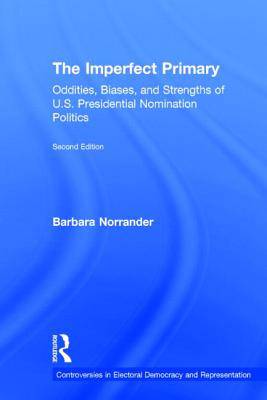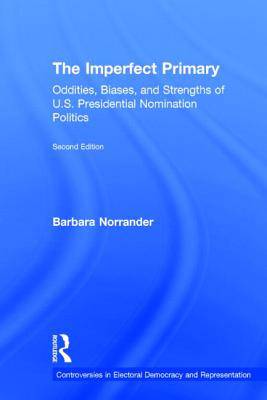
- Retrait gratuit dans votre magasin Club
- 7.000.000 titres dans notre catalogue
- Payer en toute sécurité
- Toujours un magasin près de chez vous
- Retrait gratuit dans votre magasin Club
- 7.000.0000 titres dans notre catalogue
- Payer en toute sécurité
- Toujours un magasin près de chez vous
The Imperfect Primary
Oddities, Biases, and Strengths of U.S. Presidential Nomination Politics
Barbara NorranderDescription
The complex and ever-changing rules governing American presidential nomination contests are continuously up for criticism, but there is little to no consensus on exactly what the problems are, or on how to fix them. The evolving system is hardly rational because it was never carefully planned. So how are we to make sense of the myriad complexities in the primary process, how it affects the general election, and calls for change?
In this thoroughly updated second edition of The Imperfect Primary, political scientist Barbara Norrander explores how presidential candidates are nominated, how that process bridges to the general election campaign, discusses past and current proposals for reform, and examines the possibility for more practical, incremental changes to the electoral rules. Norrander reminds us to be careful what we wish for-reforming the presidential nomination process is as complex as the current system. Through the modelling of empirical research to demonstrate how questions of biases can be systematically addressed, students can better see the advantages, disadvantages, and potential for unintended consequences in a whole host of reform proposals.
The second edition includes an entirely new chapter on the connections between the primary and general election phases of presidential selection. The entire book has been revised to reflect the 2012 presidential primaries and election.
Spécifications
Parties prenantes
- Auteur(s) :
- Editeur:
Contenu
- Nombre de pages :
- 186
- Langue:
- Anglais
- Collection :
Caractéristiques
- EAN:
- 9781138786370
- Date de parution :
- 20-02-15
- Format:
- Livre relié
- Format numérique:
- Genaaid
- Dimensions :
- 157 mm x 234 mm
- Poids :
- 430 g

Les avis
Nous publions uniquement les avis qui respectent les conditions requises. Consultez nos conditions pour les avis.






